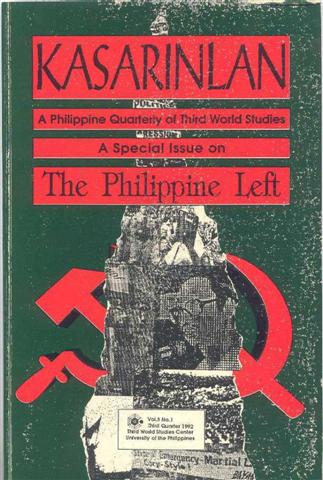Jose Maria Sison and the Philippine Revolution: A Critique of an Interface
Abstract
ExcerptOn December 26,1968, Jose Ma. Sison a.k.a Amado Guerrero met with ten of his trusted disciples to establish the Communist Party of the Philippines (CPP) along the lines of "Marxism-Leninism-Mao Tse-Tung Thought." Since then, Philippine radicalism - long thought to be politically dead after the debacle of the Huk Rebellion - has experienced a resurgence that was unprecedented in the national context. Much of the CPP's political growth, especially in the crucial initial stages, was largely attributed by many to Sison's leadership. He is said to have guided the revolutionary movement through its baptism of fire under the harsh conditions brought about by martial law. His arrest and nine-year solitary confinement did not break him. Rather, the movement continued to grow - despite most of its original leaders' death or capture (including Sison's) - to become one of the most enduring revolutionary opposition in the country and the region. It is this feat that has placed Sison among the ranks of important figures in Philippine politics.
Published
2007-10-03
How to Cite
ABINALES, P. N..
Jose Maria Sison and the Philippine Revolution: A Critique of an Interface.
Kasarinlan: Philippine Journal of Third World Studies, [S.l.], v. 8, n. 1, p. 07-81, oct. 2007.
ISSN 2012-080X.
Available at: <https://journals.upd.edu.ph/index.php/kasarinlan/article/view/301>. Date accessed: 04 aug. 2025.
Section
Articles
By submitting a manuscript, the authors agree that the exclusive rights to reproduce and distribute the article have been given to the Third World Studies Center.



